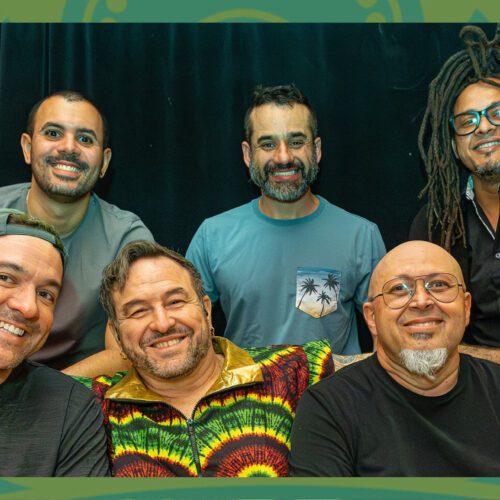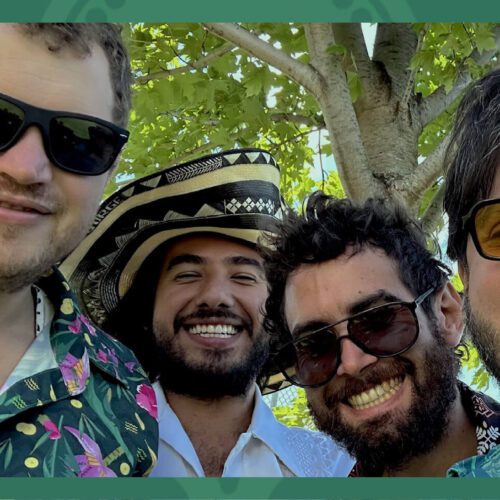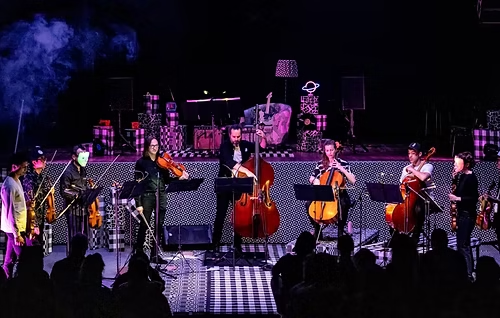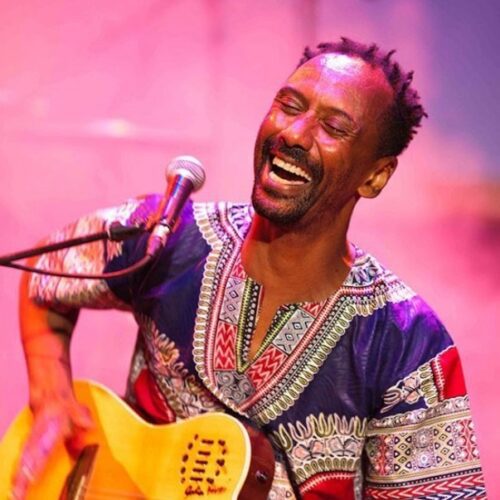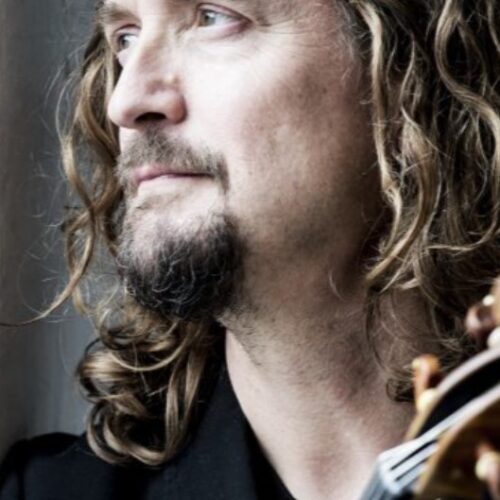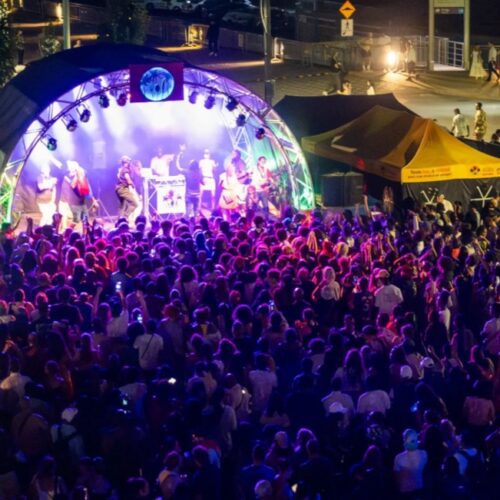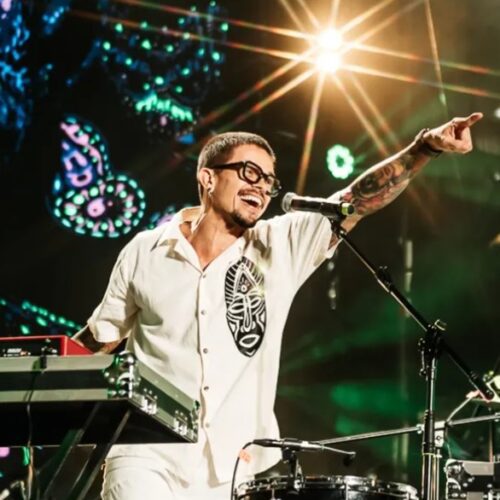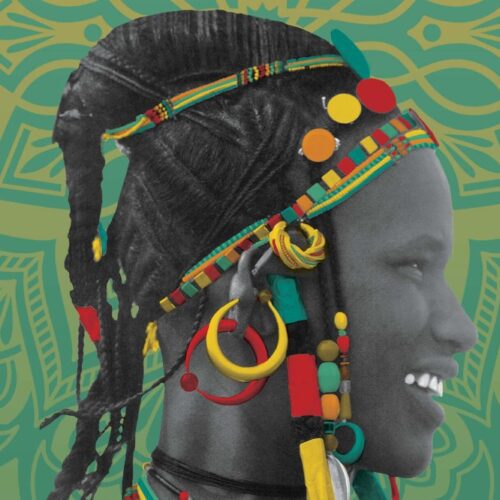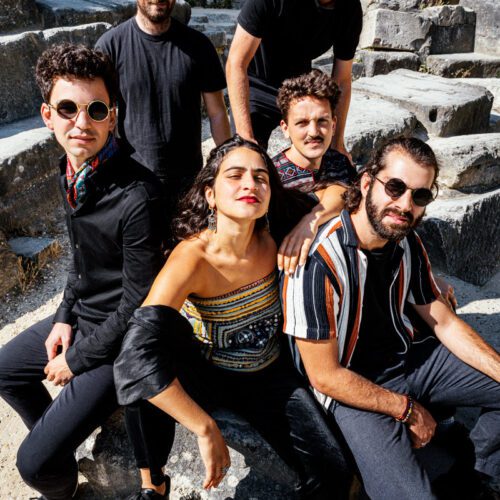Additional Information
Photos: William Arcand
As a journalist, I first met CRi in 2016 when he had just graduated from a digital music major at Université de Montréal. Associated with artists such as Robert Robert and Ryan Playground (now TDJ), Christophe Dubé was a Montreal producer to watch. Four years and a meteoric rise later, the daring artist is releasing his first album this weekend, Juvenile, with contributions from Sophia Bel, Jesse Mac Cormack, and Daniel Bélanger. What happened in such a short time?
PAN M 360: Let’s go back to our last meeting. If you had to choose one word and one event that marked your career for each year, it would be?
CRi: I would say that 2017 is research, both individual and artistic. I’ve accumulated more instruments, I’ve taken piano lessons. 2018 is the break. I was in a couple with Ouri, she was my first collaborator, we grew up together musically, then we left each other. This separation allowed me to find myself again in 2019. I would say it was a revelation: who am I as an artist, and what do I want to do? Through that, there were events like releasing an EP with Anjunadeep, starting to play a little bit everywhere… And there was the song “Fous n’importe partout” by Daniel Bélanger, which I covered with Charlotte Cardin. It was a pretty intense change in my way of being, of approaching things. 2020 is the album. It represents a new era for me. I’ve acquired a certain maturity, the long format has forced me to ask myself questions and confront myself, with my art. I come out of it stronger.
PAN M 360: Do you still consider yourself part of the new Montreal electronic scene? What can you tell me about your musical environment?
CRi: The electronic scene itself is very diverse, but it is quite hermetic through its different styles. I think it’s a shame that the techno, house and trap scenes each operate in a vacuum. It would be cool if the scenes were to rub shoulders more, if they were more connected. My gang is musical but not necessarily just electronic, we’re more into indie. Sophia Bel, Jesse Mac Cormack, they’re people who not only perform on stage with me, but they’re also friends with whom I spend time and with whom I make a lot of music. We don’t necessarily share the same styles, but what touches us all is perhaps this kind of northern melancholy in Montreal.

PAN M 360: Why did you choose the electro-indie-pop angle?
CRi: Through this album, which is, in a totally aware way, more pop, more dance, my approach is to democratise electronic music and take it out of the underground. It’s cool and necessary, the underground, but it’s also important that it becomes more accessible. There are people from outside the big cities who don’t necessarily have access to this scene, there’s no bridge between the two. If it’s something I manage to do, it could highlight artists who are a bit more underground. People would be more interested, a bit like what’s happened in hip-hop in recent years in Quebec. Loud, for example, confirmed the popular success of the genre, of hip-hop culture. Following that, it’s an ambition – I’m not at all comparing myself to Loud, but it’s a bit of an approach in the sense that I find that the scene is too closed in on itself. When you see the success of Piknic Electronik or Igloofest, you know there’s an audience and potential, there’s just a missing link between the scenes.

PAN M 360: The visual identity of your project is particularly eye-catching and neat, what’s behind it?
CRi: I was lucky enough to work with Will Arcand for the photos. My visual universe really got a boost because I had the time to work on it in confinement. It was important to have something punchy, with colours like blue and orange, especially as my music is colourful. We focused on the blur because in my way of making music, even if it’s controlled, the arrangements can get out of hand, you don’t really know what’s what anymore. The face in the water is like looking in the past because you are born in the water.
PAN M 360: You signed to Anjunadeep, a particularly well-known English label. The European electronic scene seems less hermetic than here, and audiences are perhaps more receptive to your style of music. What do you think?
CRi: Yes, I agree. I believe that in Europe, there’s a much more thorough education of this style of music. Burial can play in a shoe shop, it’s part of people’s everyday life, Mr. and Mrs. Everyman listen to electro. Signing with Anjunadeep is a good way to get out of Quebec, without emancipating myself, because it’s important for me to represent my scene.
PAN M 360: You have been able to do some dates in Europe, particularly in Great Britain, what was that like?
CRi: As Quebecers, the French always call us cousins. Yes, I feel that way when I go to France, but I have the impression that we Quebecers are more like British people who speak French. Culturally, there is a closeness that comes through architecture, through food. When I had the chance to play at Printworks in London, there were 7,000 people, it was a complete meltdown. It’s a bit like Piknic, Igloofest, but that was really something. It seemed like the audience already knew the tunes before they heard them.











